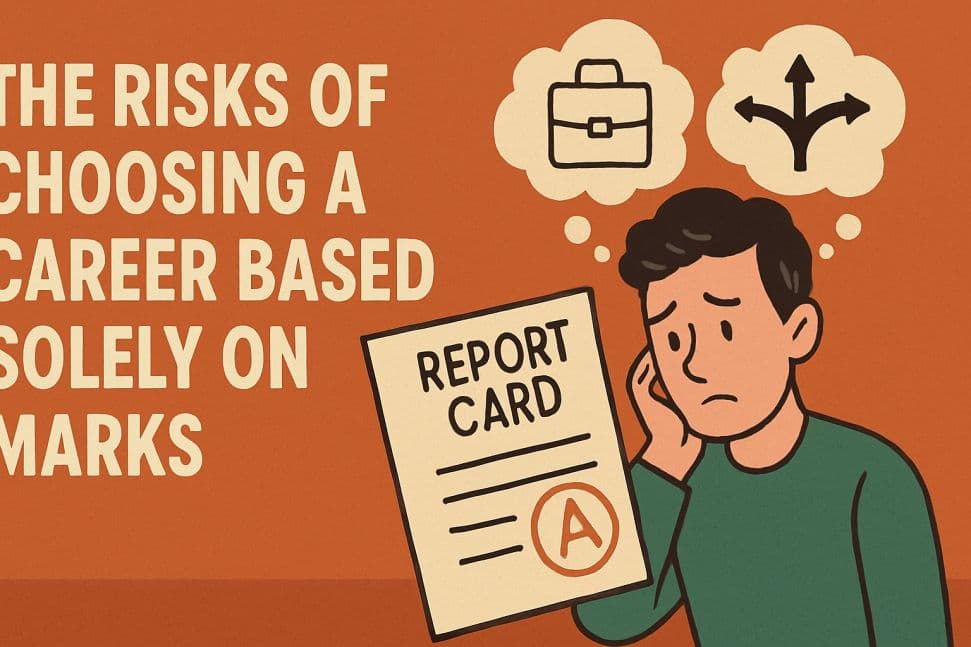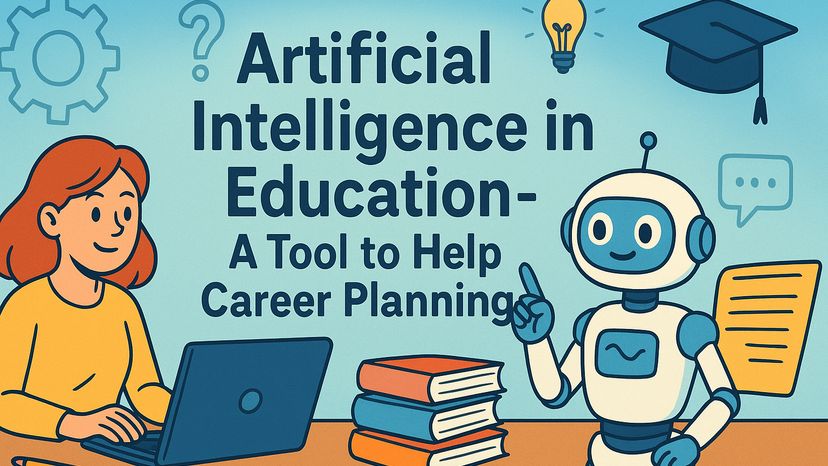Your academic marks do not define your worth and decide your success. From a young age, children are taught to believe that their academic marks are a direct indicator of their future potential, but this is absolutely false. Good grades are seen as the golden ticket to prestigious universities and eventually a “successful” career. Academic excellence can be a valuable asset but choosing your career based on marks can be a dangerous oversimplification. If one chooses a career based on academic performance, it will lead to future emotional burnouts, professional burden and dissatisfaction and profound tragedy of an unfulfilled and undesired life. Your grades and career choice are and should not be interrelated as it will impact on a person’s well-being, professional growth and mental stability.
Why you should not choose a career based only on marks?
Here are some reasons why choosing a career based on marks can be a dangerous choice:
- Personal interest – the most profound risk of choosing a career based on marks is the neglect of your passion and interests. High grades in a subject determine only your aptitude and capacity of learning; it is not equivalent to your interest in that particular subject. A student might excel in mathematics because he has good reasoning and problem-solving skills, not because he is fascinated by the numbers or the formulas. Engineering and medicine are still considered suitable career paths for students with higher grades, although his/her interest lies in humanities field, he/she is forced to abandon their dream career and passion, to follow a career path deemed “suitable” for them. This forced interest becomes the reason for future professional dissatisfaction leading to emotional burnouts and mental stress. The students should build a career in their choice of interest field and not pursue a career which seems “suitable” for them only because of their academic grades.
2. Skills vs. Marks careers – a career based solely on marks overlooks the vast landscape of skills that are necessary for professional growth. Academic marks, if high, concludes that the student is a quick learner, has a good memory to retain all the information about a topic, which it does not indicate is the critical skills such as communication, leadership, teamwork, emotional intelligence and empathy. A student with good grades in a subject can struggle to develop such soft skills which are required to excel in their career growth and job role while a student with low grades can naturally inherit the qualities like leadership and teamwork which will make him more successful in his job role compared to the student with higher grades. The real world is not a multiple choice exam. The job role and the workplace atmosphere can be complex and draining, which can only be dealt with interpersonal skills and emotional intelligence. By prioritizing grades, the individual becomes a cog in a machine, a technically proficient but socially inept professional.
3. Psychological toll – the constant pressure to provide a high-level performance in a field that you are detached from and uninterested in can lead to emotional burnout and state of constant anxiety. The initial motivation to succeed due to societal expectations is a short lived source. The daily struggle to adapt and excel the given duty can manifest into anxiety, depression and a pervasive feeling of emptiness. The academic achiever student when faced with daily failure of maintaining an up to the mark performance in his job role will experience the sense of failure intensely, making the student emotionally weak and mentally challenged. The individual may become trapped in a “golden cage”, earning a handsome salary but feeling trapped and unfulfilled.
4. Lacking creativity - Moreover, a rigid focus on marks can stifle creativity and limit a person’s potential for innovation. The education system, at its core, rewards students who are able to follow rules and instructions. Creativity is often neglected and is not always easily quantifiable. A student who is a big thinker and highly imaginative might excel in creative works but fail in producing excellent academic scores. This world needs problem-solvers, practical professionals but it also needs artists, dreamers, and innovators.
5. False sense of security – in this rapidly changing world, taken over by technology, only those professionals are successful who possess qualities like adaptability and quick learning . A high score in a particular subject today might not guarantee a stable career in that field tomorrow. When you are in a field which you are passionate about, you are more likely to stay updated on the latest development, continuously seeking to upgrade your skills and staying relevant to the current world situation. A person, who chose a particular career because of academic grades, might find it difficult to be updated on the latest trends going on in that field.











